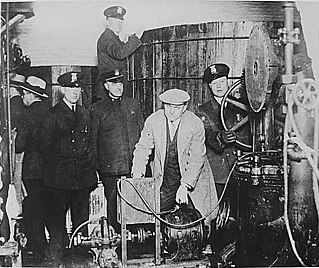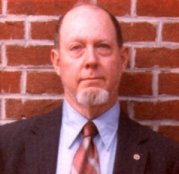
The United States presidential election of 1884 was the 25th quadrennial presidential election, held on Tuesday, November 4, 1884. It saw the first election of a Democrat as President of the United States since the Civil War. Governor Grover Cleveland of New York defeated Republican James G. Blaine of Maine.
The Bloc Pot is a provincial political party in Quebec, Canada that is dedicated to ending cannabis prohibition. It has contested four provincial elections but it has failed to win any seats in the National Assembly of Quebec. The party was launched in 1997 by Marc-Boris St-Maurice as a way to push for political change to marijuana laws. He also went on to launch its federal offspring; the Marijuana Party of Canada.
An amicus curiae is someone who is not a party to a case and may or may not have been solicited by a party and who assists a court by offering information, expertise, or insight that has a bearing on the issues in the case; and is typically presented in the form of a brief. The decision on whether to consider an amicus brief lies within the discretion of the court. The phrase amicus curiae is legal Latin.
The Scottish Prohibition Party was a minor Scottish political party which advocated alcohol prohibition.

Gene C. Amondson was a painter, woodcarver, Christian minister and prohibition activist, who was the 2004 US presidential nominee for one faction of the Prohibition Party and the nominee of the unified party in 2008.

James Franklin Hanly was an American politician who served as a congressman from Indiana from 1895 until 1897, and was the 26th Governor of Indiana from 1905 to 1909. He was the founder of Hanly's Flying Squadron, which advocated prohibition nationally and played an important role in raising awareness about the effect of alcohol and arousing public support for prohibition.

Elections to the United States House of Representatives in 1914 were held in the middle of President Woodrow Wilson's first term for members of the 64th Congress.

The Authentic Socialist Party is a socialist political party in Argentina.
Drug policy reform, also known as drug law reform, is any proposed changes to the way governments respond to the socio-cultural influence on perception of psychoactive substance use. Proponents of drug policy reform believe that prohibition of drugs—such as cannabis, opioids, cocaine, amphetamines and hallucinogens—has been ineffectual and counterproductive. They argue that, rather than using laws and enforcement as the primary means to responding to substance use, governments and citizens would be better served by reducing harm and regulating the production, marketing, and distribution of currently illegal drugs in a manner similar to how alcohol and tobacco are regulated.
Prohibitionism is a legal philosophy and political theory often used in lobbying which holds that citizens will abstain from actions if the actions are typed as unlawful and the prohibitions are enforced by law enforcement. This philosophy has been the basis for many acts of statutory law throughout history, most notably when a large group of a given population disapproves of and/or feels threatened by an activity in which a smaller group of that population engages, and seeks to render that activity legally prohibited.

Prohibition in the United States was a nationwide constitutional ban on the production, importation, transportation, and sale of alcoholic beverages from 1920 to 1933.

Alcohol prohibition in India is in force in the states of Bihar, Gujarat, and Nagaland as well as in the Union Territory of Lakshadweep. All other Indian states and union territories permit the sale of alcohol.

James "Jim" Hedges is an American politician who is a Prohibition activist and the former Tax Assessor for Thompson Township, Fulton County, Pennsylvania. He holds the distinction as the only individual to be elected to public office from the Prohibition Party in the 21st century, and the first since 1959. Hedges was the Prohibition Party's 2016 presidential nominee.
John Anderson Brooks was a noted religious scholar and prohibitionist. He was nominated for Vice President of the United States by the Prohibition Party in 1888, running with Clinton B. Fisk. The ticket carried third place in the election after the Harrison-Morton and Cleveland-Thurman tickets and garnered 249,819 popular votes.
Andrew Nathan Johnson (1876–1959) was a Methodist minister. He was born in Jackson County, Kentucky and attended Asbury College in Wilmore.

The Prohibition of Child Marriage Act 2006 came into force on 1 November 2007 in India. In October 2017, Supreme Court of India gave a landmark judgement criminalising sex with a child bride, hence removing an exception in India’s criminal jurisprudence which had until then accorded legal protection to men who raped their minor wives.